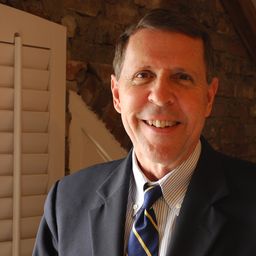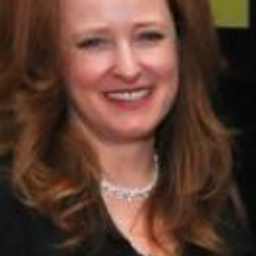
Lucie Morisset
Historienne d’architecture par formation, elle s’intéresse aux idées et aux objets de l’urbanisme, notamment dans les villes de compagnie. Elle mène des recherches sur la morphogenèse et la sémiogenèse du paysage construit et sur les relations entre l’identité, la culture et les territoires comme elles se manifestent par l’entremise des pratiques patrimoniales et la production des discours sur le patrimoine. Ses travaux incluent des initiatives de recherche action sur la valorisation du patrimoine et les communautés patrimoniales en partenariat avec des collectivités locales.
Lucie K. Morisset est membre de la Société royale du Canada.
Canada Research Chair on Urban Heritage, Lucie K. Morisset is professor at the Urban and Touristic Studies Department of the School of Management, University of Quebec in Montreal.
An historian of architecture by training, she is interested in the the ideas and objects of urban planning, notably in company towns. She has been leading research on the morphogenesis and the semiogenesis of the built landscape and on the relations between identity and culture as they are manifested throughout the practices of heritage and the production of the heritage discourse, including action-research on heritage development and heritage empowerment in partnership with local communities.
Lucie K. Morisset is Fellow of the Royal Society of Canada.
Sessions auxquelles Lucie Morisset participe
Vendredi 3 Juin, 2016
Welcome addresses and cocktail, followed by the Concordia Signature Event "The Garden of the Grey Nuns". As the opening ceremony and cocktail take place in the former Grey Nuns' Motherhouse, recycled into campus residence and reading rooms by Concordia University, delegates will also have the possibility to discover the video Three Grey Nuns (3 minutes, by Ron Rudin and Phil Lichti. Three Grey Nuns recount their memories of communal life in the Grey Nun’s Motherhouse. Built...
Samedi 4 Juin, 2016
What if we changed our views on heritage? And if heritage has already changed? While, on the global scene, states maintain their leading role in the mobilization of social and territorial histories, on the local scale, regions, neighbourhoods and parishes have changed. Citizens and communities too: they latch on to heritage to express an unprecedented range of belongings that no law seems to be able to take measures to contain, often to the discontent of...
Sessions auxquelles Lucie Morisset assiste
Vendredi 3 Juin, 2016
What does heritage change for tourism? | Le patrimoine, ça change quoi au tourisme? Ce débat veut interroger les relations entre le tourisme et le patrimoine et dépasser ainsi les idées reçues sur l'antagonisme entre le tourisme "corrupteur" et le patrimoine qui en serait la victime. Il s'agit donc de repenser le tourisme comme un réel acteur du patrimoine, de sa valorisation et de son appropriation, y compris par les populations locales. Cela présuppose, au p...
This forum will explore the current directions of critical heritage studies and what makes ACHS distinctive. Panel members will discuss what the term critical means to them, and what directions they would like to see develop in the future. To help develop an open dialogue, the session will also give considerable time to contributions from the audience.
Welcome addresses and cocktail, followed by the Concordia Signature Event "The Garden of the Grey Nuns". As the opening ceremony and cocktail take place in the former Grey Nuns' Motherhouse, recycled into campus residence and reading rooms by Concordia University, delegates will also have the possibility to discover the video Three Grey Nuns (3 minutes, by Ron Rudin and Phil Lichti. Three Grey Nuns recount their memories of communal life in the Grey Nun’s Motherhouse. Built...
Working with archival documents and the current-day morphology of the Grey Nuns' site, Dr Cynthia Hammond, Dr Shauna Janssen, in collaboration with Dr Jill Didur, will curate a series of installations and performances that speak directly to the rich heritage of a specific urban landscape: the gardens of the Grey Nuns' Motherhouse, now part of the Concordia University downtown campus. Visitors will have the opportunity to explore the lost working gardens of the Grey Nuns. As with other such...
Samedi 4 Juin, 2016
Le patrimoine recouvre des notions et des pratiques, et désigne des objets, dont « [la] perte constitue un sacrifice et [dont la] conservation suppose des sacrifices » (Chastel et Babelon 1980). En amont de ces productions de significations et perceptions sociales, ces notions et les modes de désignation diffèrent selon les univers linguistiques, géographiques, et temporels, alors que, sous la pression d’un ‘algorithme universalisant’ (Merleau-Ponty 1969), un processus de normalisation est...
This festive event will offer delegates a taste of one of the iconic dishes of Montreal, the smoked meat sandwich, imported by Jewish immigration from Eastern Europe in the early 20th century. In particular, the tasting will allow a discovery of the products of the renowned international institution Schwartz's, the Hebrew Delicatessen for which Montrealers and tourists alike are willing to wait in long line-ups. During the tasting, “Chez Schwartz,” a documentary produced by Garry B...
Most of what we experience as heritage emerges into conscious recognition through a complex mixture of political and ideological filters, including nationalism. In these processes, through a variety of devices (museums, scholarly research, consumer reproduction, etc.), dualistic classifications articulate a powerful hierarchy of value and significance. In particular, the tangible-intangible pair, given legitimacy by such international bodies as UNESCO, reproduces a selective ordering of cul...
Dimanche 5 Juin, 2016
"What does heritage change?" is a multifaceted question to which the answer(s) are in primary respects related to real-life negotiations among different groups of citizens, cultures, races, ethnic groups, sexual identities, and social classes about received, official and/or widely accepted or accomodated intangible attributes, cultural traditions, historic monuments, buildings, and other transmitted or revived historical legacies. Heritage designated by and for whom, for what motivations, an...











